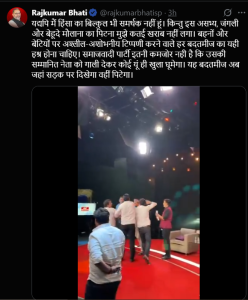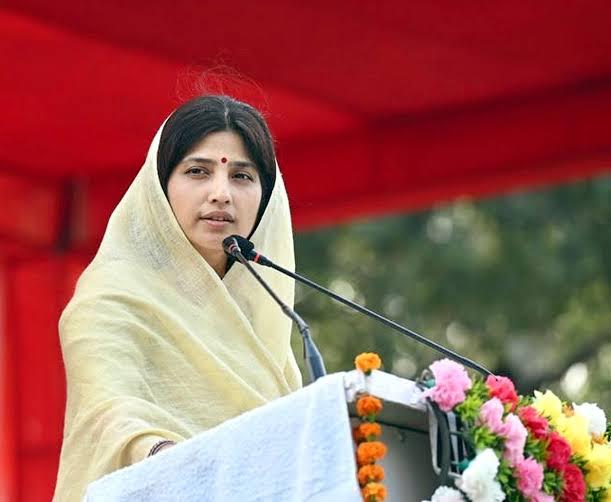
Maulana Sajid Rashidi’s remarks, made during a televised debate, targeted Dimple Yadav’s attire during a visit to a mosque, calling it disrespectful to Islamic traditions. His language, including references to her “naked back,” was widely condemned as offensive and misogynistic, prompting an FIR under multiple sections of the Bharatiya Nyaya Sanhita for outraging modesty and inciting communal disharmony. The backlash was justified, as such remarks not only demeaned a woman parliamentarian but also risked inflaming religious tensions. However, the SP’s response—physical violence in a public setting—crossed a line from protest to hooliganism, reflecting a troubling trend in political culture.
The assault, captured on video and widely circulated, showed SP workers slapping Rashidi during a studio break, an act that undermines democratic discourse and the rule of law. Critics argue this mirrors the tactics of other regional parties like the Rashtriya Janata Dal (RJD), known for strong-arm politics. The SP’s defense of such actions, exemplified by leader Rajkumar Bhati’s alleged threat to beat Rashidi wherever he is seen, further fuels perceptions of a party culture that tolerates or even endorses thuggery. This behavior contradicts the socialist ideals of equality and justice, often championed by SP leaders citing Dr. B.R. Ambedkar and the Constitution.
Dimple Yadav’s mosque visit, where she did not cover her head, has been debated as a breach of Islamic etiquette. While cultural sensitivity is crucial when entering religious spaces, using this as a pretext for misogynistic attacks is indefensible. Equally, the SP’s resort to violence rather than legal or verbal rebuttal reveals a deeper issue: a reliance on muscle power over dialogue. This incident is not isolated but part of a pattern where political workers, across parties, prioritize intimidation over democratic engagement.
In conclusion, while Rashidi’s remarks were condemnable, the SP’s violent response exemplifies a dangerous form of political hooliganism. It erodes public trust in democratic institutions and highlights the need for parties to uphold civility and legal recourse over mob tactics. True socialism should champion dialogue and respect, not fists and threats, to preserve India’s pluralistic fabric.





